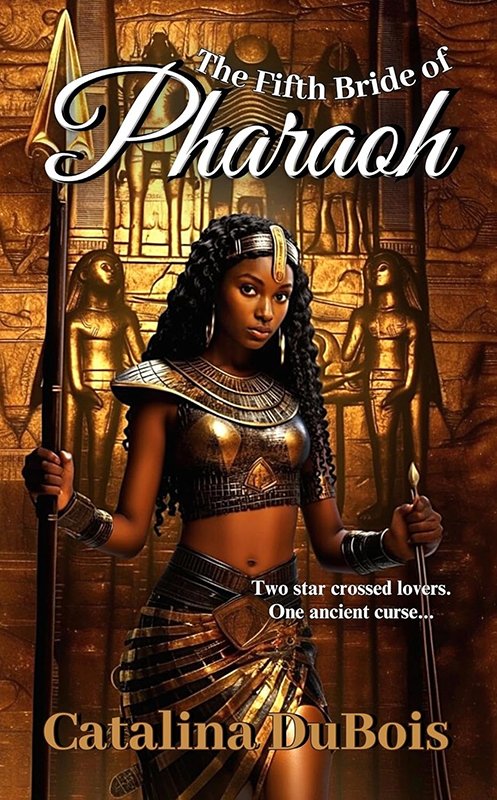Unveiling the Truths of the Past Through Fiction That Challenges, Inspires, and Resonates Across Generations
Catalina DuBois masterfully blends historical fiction with social insight, exploring interracial love, forgotten histories, and the resilience of the human spirit through meticulous research and fearless storytelling.
Catalina DuBois, a luminary in contemporary literature, has captivated readers with her profoundly resonant narratives that explore the intricate tapestry of American history through the lens of personal experience and cultural identity. Since the publication of her debut novel in 2009, DuBois has distinguished herself not only as a talented storyteller but also as a passionate advocate for the acknowledgement of the multifaceted aspects of history that shape our understanding of the present. Her works, adorned with numerous accolades, delve into the dynamics of interracial relationships while illuminating the struggles of those who have navigated the often turbulent waters of societal change.
In this issue magazine, we are thrilled to present an insightful interview with DuBois, wherein she shares the inspirations behind her writing and offers a glimpse into her creative process. Her insightful reflections challenge the conventional narratives that often obscure the rich diversity of experiences within American history. With eloquence and conviction, she invites us to reconsider preconceived notions and to embrace a more inclusive understanding of our collective past.
DuBois’s commitment to authenticity is evident in her meticulous research, drawing from both historical resources and the invaluable wisdom of elders, whose stories enrich her narratives with depth and truth. As her readers have found, her tales are far more than mere historical fiction; they are lessons embedded in rich storytelling, reflective of her profound respect for the art of African storytelling that has influenced her approach.
Join us in celebrating the remarkable journey of Catalina DuBois, whose voice continues to resonate across borders, encouraging readers worldwide to engage with history in a meaningful way. With each book, she not only entertains but challenges us all to reflect more deeply on the legacies that shape our lives today.
DuBois crafts immersive, thought-provoking narratives that challenge historical misconceptions while delivering deeply emotional and compelling storytelling.
What inspired you to explore historical themes through fiction, particularly focusing on interracial relationships and the challenges faced in different time periods?
After meeting the love of my life I began to wonder if things may have gone differently for us had we been born just fifty years sooner. Would the world have graciously bestowed blessings upon our love, or would fifty years, a mere blink in time have made us tragically star crossed? If we would have been cursed over so small a change, how would a hundred years affect us or a thousand?
How do you balance historical accuracy with creative storytelling when writing your novels?
The most important thing is to avoid becoming so mired in historical details that your story begins to read like a textbook.
What kind of research process do you undertake to ensure your depiction of historical events and cultures is authentic?
Libraries are an abundant resource. I also enjoy traveling to museums and historical sites. My absolute favorite method of research is to interview my elders for firsthand accounts of historical events. There are so many uncomfortable truths and politically incorrect details that never make it into history books. Human beings are the best source of knowledge because older folks don’t care about your feelings. They speak the truth and I love them for it.
“The most important thing is to avoid becoming so mired in historical details that your story begins to read like a textbook.” – Catalina DuBois
Your books have received international recognition—how do you think perspectives on American history differ between audiences in the U.S. and abroad?
One thing I prefer about an international audience is the open-mindedness and the absence of racism. They don’t carve up American history into subcategories based on race to exclude entire ethnic groups in a phony revisionist fairytale that we force-feed to school children. These lies are spread by Americans alone and they sicken me. I love an international audience because they see us all as Americans. There is no black history nor women’s history on a world stage. It’s all American history.
What challenges have you faced in addressing sensitive historical topics, and how do you navigate criticism while staying true to your vision?
Long ago I accepted the fact that I can’t please everyone. Anytime you tell the truth it angers immature people. They were raised inside a shell of ignorance and fluffy delusions. The truth is the breaking of that shell. It is a painful but necessary transition on the journey to understanding our past and shaping a brighter future for all.
Can you share more about your experience with African storytelling and how it influenced your writing style and themes?
African tales are rarely just to entertain you. There is usually a lesson to be learned. To remain true to this tradition my books have societal lessons within them. I have the greatest respect for African storytelling. It’s one of the precious few customs that made it across the Atlantic. I gaze in the mirror knowing that I have lost my name, my language, my religion, and even my skin color as I have been mixed into the beautiful melting pot that is America. But the one thing I will always have is those stories that filled my heart as a child. Those stories made me a blend of two worlds and I will always try to honor them.
EDITOR’S CHOICE
A beautifully written, emotionally gripping tale of love, sacrifice, and defiance set in a vividly immersive ancient Egyptian world. Captivating and unforgettable!



